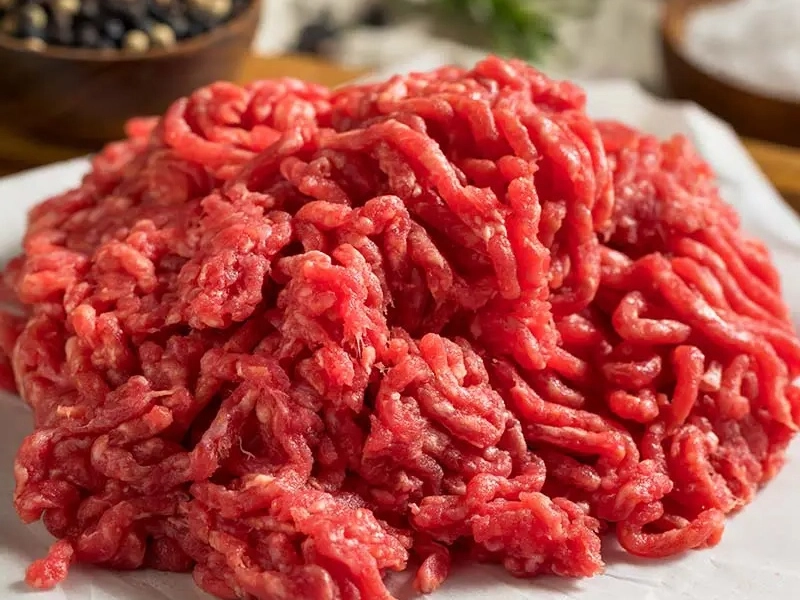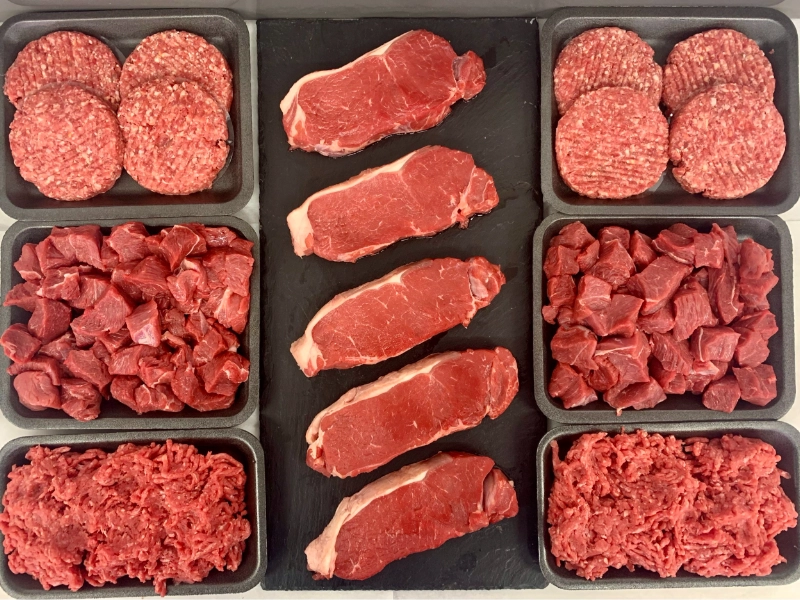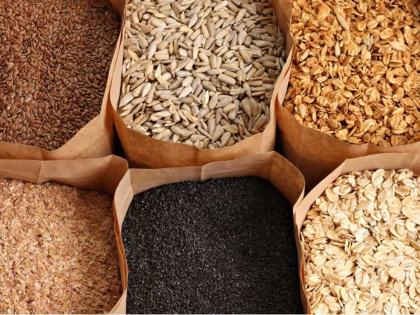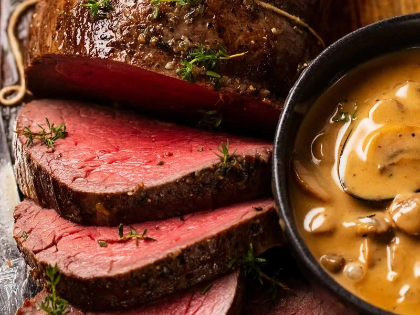Lean Beef and Cholesterol: Separating Fact from Fiction
1. Understanding Cholesterol

2. The Nutritional Profile of Lean Beef
 Excellent proteins, vital vitamins, and minerals abound from lean meat. It supplies key minerals such iron, zinc, and B vitamins—especially vitamin B12, which is essential for red blood cell development and energy generation. For people worried about their cholesterol intake, lean cuts of beef—such as sirloin or tenderloin—have less fat than fattier cuts. Knowing lean beef's nutritional advantages helps one better define its place in a healthy diet.
Excellent proteins, vital vitamins, and minerals abound from lean meat. It supplies key minerals such iron, zinc, and B vitamins—especially vitamin B12, which is essential for red blood cell development and energy generation. For people worried about their cholesterol intake, lean cuts of beef—such as sirloin or tenderloin—have less fat than fattier cuts. Knowing lean beef's nutritional advantages helps one better define its place in a healthy diet.
3. The Relationship Between Dietary Cholesterol and Blood Cholesterol
 Dietary cholesterol was supposed to directly affect blood cholesterol levels for years. Recent studies, nevertheless, have revealed a more complicated link. Most people find that their blood cholesterol levels are not much affected by food. The liver generates cholesterol depending on the needs of the body; so, as dietary cholesterol consumption rises, it usually adjusts by generating less. For many people, then, eating lean beef in moderation does not noticeably increase LDL cholesterol levels.
Dietary cholesterol was supposed to directly affect blood cholesterol levels for years. Recent studies, nevertheless, have revealed a more complicated link. Most people find that their blood cholesterol levels are not much affected by food. The liver generates cholesterol depending on the needs of the body; so, as dietary cholesterol consumption rises, it usually adjusts by generating less. For many people, then, eating lean beef in moderation does not noticeably increase LDL cholesterol levels.
4. Lean Beef and Heart Health
 When eaten sensibly, lean beef can fit a heart-healthy diet. The secret is to choose lean cuts and cook them instead of fried using good techniques as baking or grilling. Studies have shown that including lean beef in a balanced diet together with fruits, vegetables, whole grains, and good fats helps heart health. Especially in active people, the protein and minerals in lean beef can also support general health and muscle mass maintenance.
When eaten sensibly, lean beef can fit a heart-healthy diet. The secret is to choose lean cuts and cook them instead of fried using good techniques as baking or grilling. Studies have shown that including lean beef in a balanced diet together with fruits, vegetables, whole grains, and good fats helps heart health. Especially in active people, the protein and minerals in lean beef can also support general health and muscle mass maintenance.
5. The Role of Saturated Fat
The saturated fat level in beef raises one of the main issues about its consumption. Higher LDL cholesterol levels connected to saturated fat have been linked to heart disease development. Still, not every saturated fat affects health the same way. Lean beef has less saturated fat than fatty portions, and when eaten in moderation it is less likely to raise or lower cholesterol. Making wise dietary decisions depends on knowing the many forms of fats found in foods.
6. The Importance of Portion Control
The way lean beef influences cholesterol levels and general health depends much on portion control. Eating plenty of any kind of meat can cause one to consume too many calories and consume more saturated fat. The American Heart Association advises people to practice moderation and choose lean cuts instead of red meat, therefore limiting their intake. Reducing portion sizes helps people to enjoy lean beef without sacrificing their heart health.
7. Balancing Lean Beef with Other Food Groups
Including lean beef into a balanced diet means combining it with several other food categories. Including lots of fruits, veggies, whole grains, and good fats will help meals have more nutritional worth. For instance, a stir-fry made with lean meat, vibrant vegetables, and brown rice offers a well-rounded dinner high in nutrients. This harmony can help reduce any possible bad impacts of saturated fat and dietary cholesterol.
8. Myths About Lean Beef and Cholesterol
There are several fallacies about lean beef's effect on cholesterol levels. One often held belief is that all red meat is bad and should be avoided. Actually, when eaten deliberately, lean beef can fit a good diet. Another fallacy is that everyone's blood cholesterol directly results from their diet. As was already established, everyone reacts differently to dietary cholesterol; many people can consume lean beef without appreciable impact on their cholesterol levels.
9. The Role of Lifestyle Factors
Management of cholesterol levels and heart health is much influenced by lifestyle choices including physical exercise, smoking, and general dietary patterns. While a diet heavy in good foods can support general wellness, regular exercise can help raise HDL cholesterol and lower LDL cholesterol. Those who concentrate on a whole strategy using lean beef as part of a diversified diet will be better in controlling their cholesterol levels and lowering their risk of heart disease.
10. Summary of Lean Beef and Cholesterol
Particularly when eaten in moderation and as part of a diversified meal plan, lean beef can be a healthy and useful addition to a balanced diet. Knowing the link between food and blood cholesterol as well as the need of portion management and balanced meals will assist to dispel false ideas about red meat. People can enjoy lean beef while keeping good cholesterol levels and supporting their heart health by choosing wisely and thinking through general lifestyle elements.









